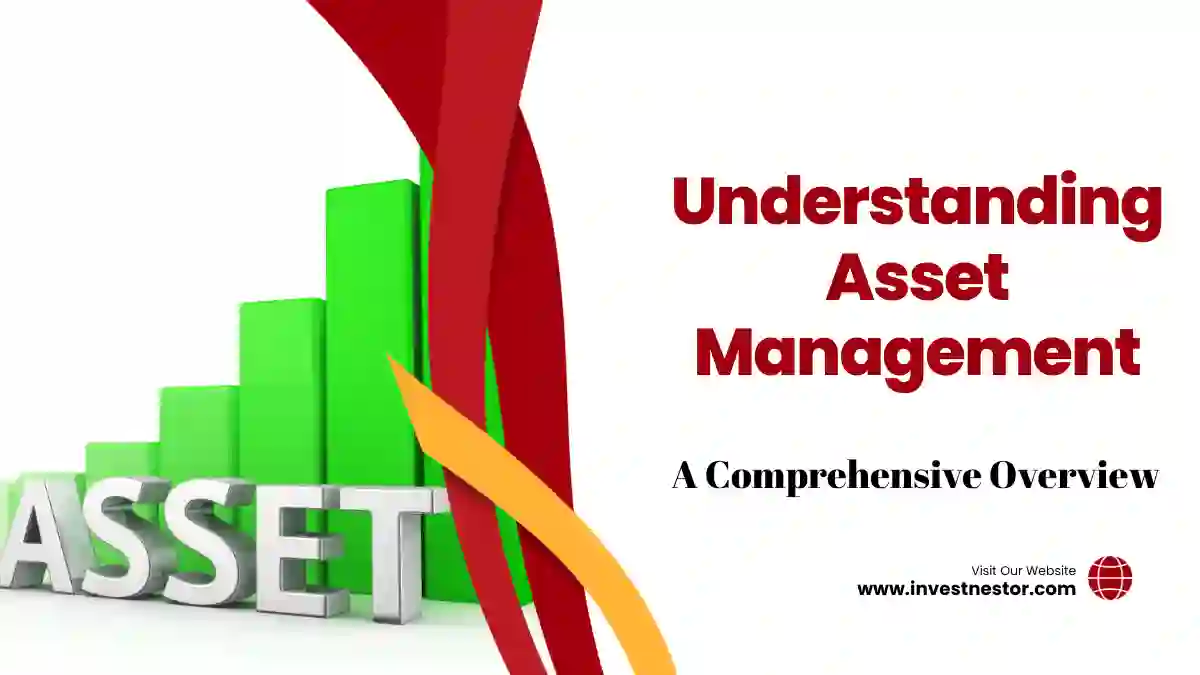
Discover the Power of Asset Management: Maximize Your Wealth
Organizations use asset management as a secret weapon to boost investments while minimizing risk. Imagine a world where talented experts in this field can work independently or for an active financial institution like an investment bank.
Most companies use asset management to make their investments more valuable and reduce risk. Financial institutions like investment banks may employ professionals who offer this service, or they may operate on their own. You can manage your portfolio more effectively and generate money by learning about asset management. This article discusses asset management, how it works, and how asset managers can help you financially.
What is Asset Management?
The process of managing an investment portfolio for a company or a single investor is known as asset management. It includes the purchasing and selling investments within a portfolio, among other investment services provided to customers by institutions.
Asset management is when you carefully handle and make the most of your assets to reach certain money goals. Investments of all kinds, including stocks, bonds, real estate, and other items, can be considered assets. Asset management seeks investment success and risk reduction.
Asset management includes:
- Different tasks like analyzing portfolios.
- Deciding how to distribute assets.
- Evaluating risks.
- Continuously keeping an eye on investments.
You need to know a lot about the financial markets, be able to spot economic trends, and understand the specific wants and goals of each investor. Asset management is crucial for major enterprises that spend on infrastructure, technology, and other resources to boost revenue and cash flow.
Read Also: Top 10 Financial Mistakes to Avoid
Importance of Asset Management
-
Ensure compliance: Tracking assets digitally or manually improves organization and record-keeping. This can help it find investment data faster during reporting periods and ensure asset managers account for everything.
-
Reduce loss: Monitoring assets can assist a corporation in uncovering reporting system problems and save loss from expiring inventory or depreciating infrastructure.
-
Simplify audits: Actively managing your assets throughout the year can reduce the time and effort needed to validate investment information for outside parties.
-
Save on costs: Asset management reduces life cycle expenses, lowering maintenance and operating costs. This might also assist a corporation in assessing its cost patterns to improve efficiency.
The Role of Asset Managers
- An asset manager is a professional expert who oversees and manages the investments for their clients or customers. The role of an asset manager is to make several plans and strategies, keeping in mind their clients' financial goals. They have huge financial responsibilities.
- Asset managers give you advice on smart investing. They discuss your needs and ambitions. They select the greatest investments for you using their expertise. Asset management goes beyond stock trading. It involves maintaining your portfolio, tracking performance, and altering strategy as required.
- They look into markets, check trends, and keep up with economic events to make wise investments. Furthermore, asset managers regularly notify clients of their investments' performance through reports and updates.
The Three Main Types of Asset Management
Below are the three main types of asset management that you should know about. They are:
Financial asset management:
This is how you divide your savings among financial products like mutual funds, stocks, bonds, and alternative investments. The aim is to gradually grow your money and earnings by choosing investments aligning with your objectives and risk tolerance. Expert financial asset managers can help you build and manage your investment portfolio. They use different methods and plans to get the best results and reduce losses.
Fixed asset management:
This is the process for managing the physical assets of your business, such as its furniture, plants, and machines. Ensuring that your assets are purchased, utilized, maintained, and disposed of properly will boost your production and operational efficiency. All of your asset trades are monitored and documented by fixed asset managers. In addition, they perform valuations and inventory, schedule preventive maintenance, and ensure that all tax and accounting regulations are met.
Infrastructure asset management:
This means maintaining infrastructure like bridges, airports, trains, water, power, and transport networks, which benefit the entire nation. The goal is to increase the quality and sustainability of these assets by organizing and carrying out every stage of their design, construction, operation, maintenance, and renewal. Infrastructure asset managers oversee estimating assets' present and future requirements, resource allocation, risk and uncertainty management, and stakeholder satisfaction.
Examples of Asset Management Companies
Asset management is when you place your money into a company that helps you reach your financial goals by offering different products and services. There are a few famous companies that manage assets.
BlackRock:
The largest asset manager in the world manages around $9 trillion as of 2021. You can invest in stocks, bonds, cash management, special investments, and techniques that combine various investment kinds, among many other options. It also gives technology platforms and advice to big organizations and individual investors.
Vanguard:
This company regulated $7 trillion in assets in 2021, making it a leading global provider of cheap index funds and ETFs. Many forms of investments are made in the country and abroad. These investments include different industries, styles, sizes, and regions. It also helps its clients with planning their finances and provides education services.
Fidelity:
This company handles about $4 trillion in assets and provides various money services. Mutual funds, ETFs, equities, bonds, annuities, retirement plans, college savings programs, and managed accounts are all options for investment that they provide. It handles brokerage, banking, insurance, and wealth management.
In Conclusion
Proper asset management is crucial for a healthy financial life. Managing clients' investment portfolios is essential in financial services. Since asset managers have many tools and technology, they can continue to give excellent services. If you invest money in a big organization or someone with enough money, you can look for a company that helps manage your assets. Start your financial journey by understanding asset management and choosing your ideal partner.
FAQs
Why is asset management important?
Asset management helps people and businesses meet financial goals and secure their investments.
What is the role of an Asset Manager?
Financial experts are asset managers who create and execute investment plans, choose assets, monitor their performance, and advise individuals and groups on financial goals.
In What Ways Can Asset Management Help Me?
Asset management can help you make smart investment choices, spread your investments, and grow your money while handling risks well.
Is There Any Risk Associated with Asset Management?
Yes, asset management risks involve market shifts, economic downturns, and unforeseen incidents. Asset managers try to reduce these risks by spreading their investments across different things and making careful plans.





0 Comments
Add a comment